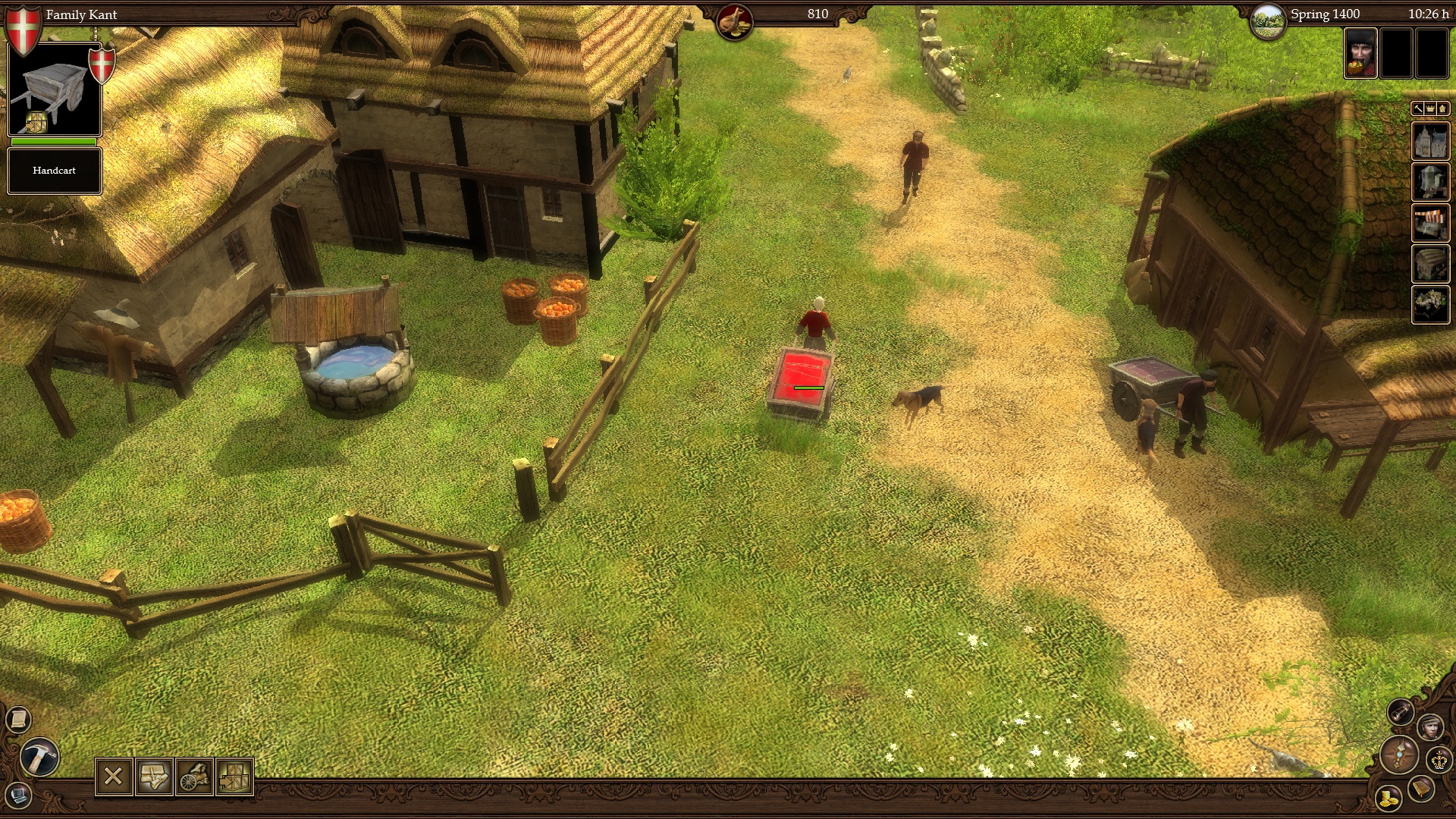

if your in the business of making ANYTHING be sure to invest in at least 4 or 5 points into Handycrafts. Rogues can also pickpocket citizens, and tend to be combat-focused characters. Instead of gathering or processing materials, or providing services for the citizens, rogues make money by stealing, either by scouting and burglarizing buildings as a thief, or waylaying shipments as a robber. Rogues are the criminal element in the Guild 2, and operate differently from the other classes. The Rouge Favored Attributes: Constitution, *Stealth*, Martial Arts, Empathy gold through alchemy, poison, and poetry), If you take the Mage rout you can perform "summonings" in the basement of your lvl 2 or 3 building (you need a high Arcane knowledge for it to be successful) and if you take the Holy rout you can operate churches and give sermons to the citizens. Scholars are more concerned with knowledge, and can produce a number of specialized items (e.g. The Scholar Favored Attributes: Charisma, Rhetoric, Arcane Knowledge meats, baked goods, and beer), and can serve those items to people at an inn or public house. They can operate farms to harvest plants or animal products, use those materials to produce consumables (e.g. Patrons are responsible for providing food and drink to the citizens. The Patron Favored Attributes: Constitution, Empathy, Bargaining

ore, wood, or animal hides), and combine and process those materials into usable products (e.g. There are four character classes in the Guild 2:įavored Attributes: Constitution, Dexterity, Handycrafts, BargainingĬraftsmen can create products for use by the town citizens. Overall, the scholar is my 2nd favorite.When starting up a new game, you can choose what town to begin the game in, how many Rival Family's there are and create a new character from scratch, customizing name, Family Crest, gender, class, zodiac sign, religion, appearance, and voice.Īlthough most of these options are cosmetic, zodiac sign and religion have some minor effects in game (generally small stat bonuses), and the character's class determines which professions are available. You deposite in your bank you own and then you can give loans to villagers with interest.

The bank produces coin to sell, and you may also give out loans. The scholar looses some of his usefullness towards the end game, but he still has the bank. 5,000-9,000 Gold a day (including taxes and fees). By the time you own 4 Churches, you should be recieving approx. The Church will produce books, artifacts, and parchments, but the main thing with the church is that twice a day villagers will swarm it (if they follow the faith of your church) and make mass donations to you. The Scholar is the strongest early game class because of the church. Most of the goods that these buildings ultimately produce are items that can be used by a character or their henchmen to improve certain attributes that will make them temporarily more effective. A Scholar can build a church, a tinctury, and the pesthouse (which may be upgraded to an infirmary, then to a hospital). The Scholar goods produce are often very specialized. Money will accumulate slowly and just purchase Titles and build more of them. Through my play with this class I just build a massive empire of Taverns and Inns and put them on AI control. You can build just this and have the AI manage it and come out with a profit because the bear and food you sell gives more profit then is lost. What I personally have found helpful with this class is the public houses/Tavens/Inns. But the one problem with the patron is that to buy all those buildings to get a production line is expensive. In that the wheat that is produced in a Patron's farm may be sent to the same Patron's bakery to be made into bread, thus leaving all profits in the hands of the character. Patrons are largely self-sufficient in terms of their resource production and manufacturing. They can construct buildings such as farms (both animal and crops), public houses (which may be upgraded into taverns and inns), and bakeries and provide many raw materials that can be turned into foodstuffs and other basic necessities. The Patron is considered to be one-half of the backbone of society in Guild 2.


 0 kommentar(er)
0 kommentar(er)
